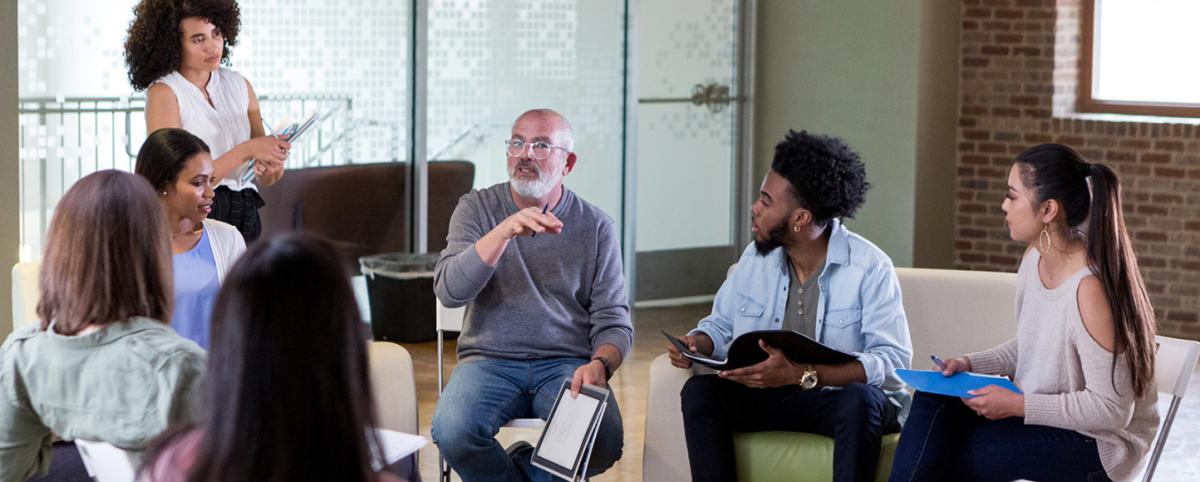CHAT Sessions

Gather powerful insights for your study from those impacted by a specific health issue with the help of a Community Health Authentic Talk (CHAT) Session.
Meaningful insights to enhance your study idea or protocol
CHAT Sessions are virtual conversations which elevate and center the lived experiences of community members to assist researchers in their health-related research. They can help researchers:
- Formulate a research question the community is also interested in.
- Learn how to conduct their research in culturally appropriate ways.
- Identify ways or best practices to share the research with community members.
Easy and free for researchers
Free for community-based and University of Minnesota researchers.
Small time commitment.
No IRB approval needed.
What to expect
Our role
- Plan and manage the CHAT Session. We handle all aspects of the session, which is tailored to meet the needs of the researcher.
- Recruit participants. Participants are chosen based on the researcher’s criteria. They may include patients, family members/caregivers, advocates, residents, or others impacted by a given health issue.
- Host a facilitated conversation. Community facilitators represent a spectrum of identities, experiences, and languages.
- Provide a summary report. This will include the CHAT Session’s major themes and takeaways, which will be sent to the researchers.
Researcher role
CHAT Sessions require only a small amount of time for researchers. They typically spend less than five hours planning for and participating in a CHAT Session.
- Support planning efforts. Attend one planning meeting and provide background information.
- Actively listen. During the CHAT Session, listen to the participants and give clarifications as needed.
Researcher outcomes
New community-University partnership
College of Food, Agricultural and Natural Resource Sciences
Enhanced research design
Medical School
Improved recruitment plans and materials
School of Public Health
What researchers say
“This service is amazing, and the team carrying it out is stellar. I'm going to be recommending it to my colleagues.”
“THANK YOU FOR PROVIDING THIS SERVICE! What an incredible gift to our research team! Organizing all of these community experts and taking notes for us was extremely helpful. The CHAT team was fantastic to work with. THANK YOU, THANK YOU, THANK YOU!”
“Great to know that we are on the right track with activities/efforts we already value when it comes to building trust with youth in the community. [...] The community experts confirmed the importance of this approach. So we will continue on the path of building relationships with community-based organizations as we plan for our next grant.”
“We have had a major breakthrough with the beginnings of some great collaborative work with Youthprise. We are very excited about this partnership with Youthprise, and may co-author a larger grant with them in the future.”
Frequently asked questions
Can I recruit the people from the CHAT Session to participate in my study?
You may not use the CHAT Session to recruit study participants. You may, however, share information about the study so people can contact you or your research staff for more information outside of the CHAT Session.
Can I pick or recommend specific people to participate?
You may provide suggestions about who to recruit. However, we ultimately determine the recruitment process and venues and conduct the recruitment, which is a benefit of the CHAT Session for researchers and may broaden the representation of participants.
Why is there a facilitator? Can I facilitate myself?
CHAT Sessions use a trained community facilitator who has experience working with group processes and understands the principles of community engagement. Using an independent facilitator allows a researcher to listen to feedback and ask for clarification without having the responsibility of leading the process.
Can the information from CHAT Sessions be used for research purposes or publication?
It depends on how you intend to use the information. It is acceptable to describe the process and the input that you received. However, because those who participated in the CHAT Session are not research participants, you cannot provide details of who participated or analyze the input by any demographics.
More about CHAT Sessions
The CHAT Session model is modified from Community Engagement Studios, which was originally developed by Vanderbilt University’s Institute for Clinical and Translational Research and was featured in an Academic Medicine innovation report.